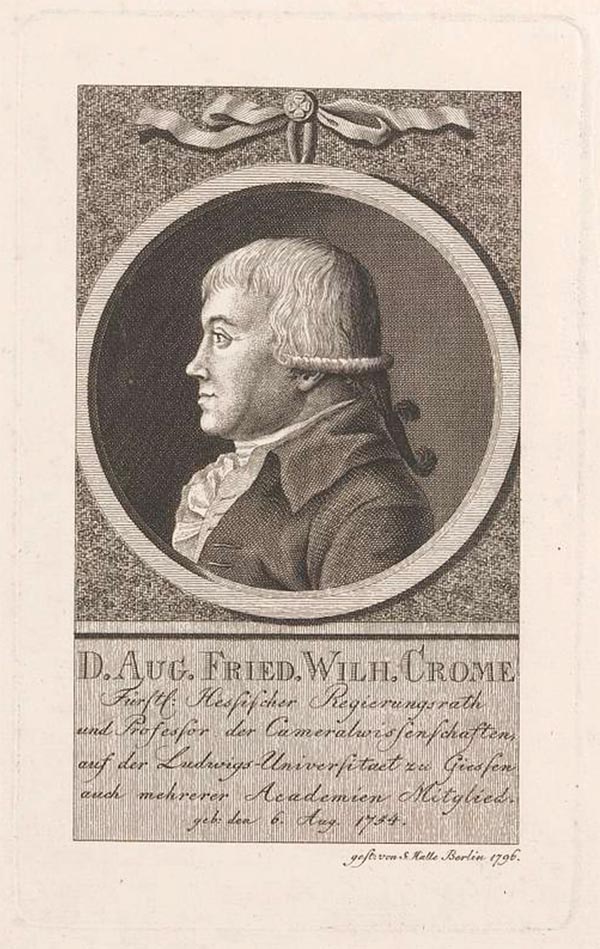August Friedrich Wilhelm Crome (June 8, 1753 - July 11, 1833) was a German economist and statistician. Crome was born in Sengwarden, Germany, where he received his initial schooling under his father, Johann Friedrich Crome (1724 - 1802), a local headmaster, pastor, and politician. With financial assistance from his uncle, the geographer and theologian Anton Friedrich Büsching (1724 - 1793), Crome studied theology at the University of Halle from 1772 - 1774. He afterward became a private tutor in Berlin and Brandenburg. From 1779, he took a position teaching history and geography at the Philanthropinum in Dessau. Then, in 1787, Crome accepted a professorship at the University of Giessen. During this time, he published several maps and diagrams, the most significant of which is the Neue Carte von Europa, considered the first European thematic and economic map. His cartography proved influential, inspiring subsequent thematic and comparative works by figures such as Alexander von Humboldt (1769 - 1859) and Charles Dupin (1784 - 1873). During the Napoleonic Wars (1803 - 1815), he became a supporter of the Confederation of the Rhine and French Empire - which he considered a force for pan-European free trade and economic stability. This view proved unpopular, and as a 'scoundrel' and 'infamous Bonapartist,' he became the subject of severe intellectual attacks from the populist editors. In 1822, he received the title of Privy Councillor. Crome retired in 1831 and spent the last years of his life in Rödelheim near Frankfurt, where he died.


